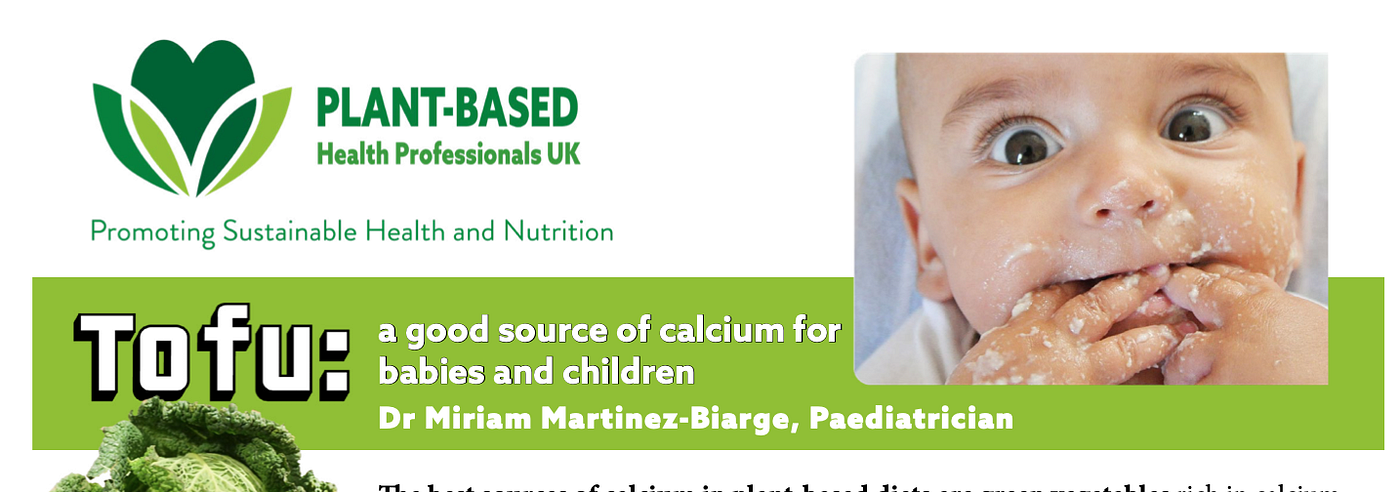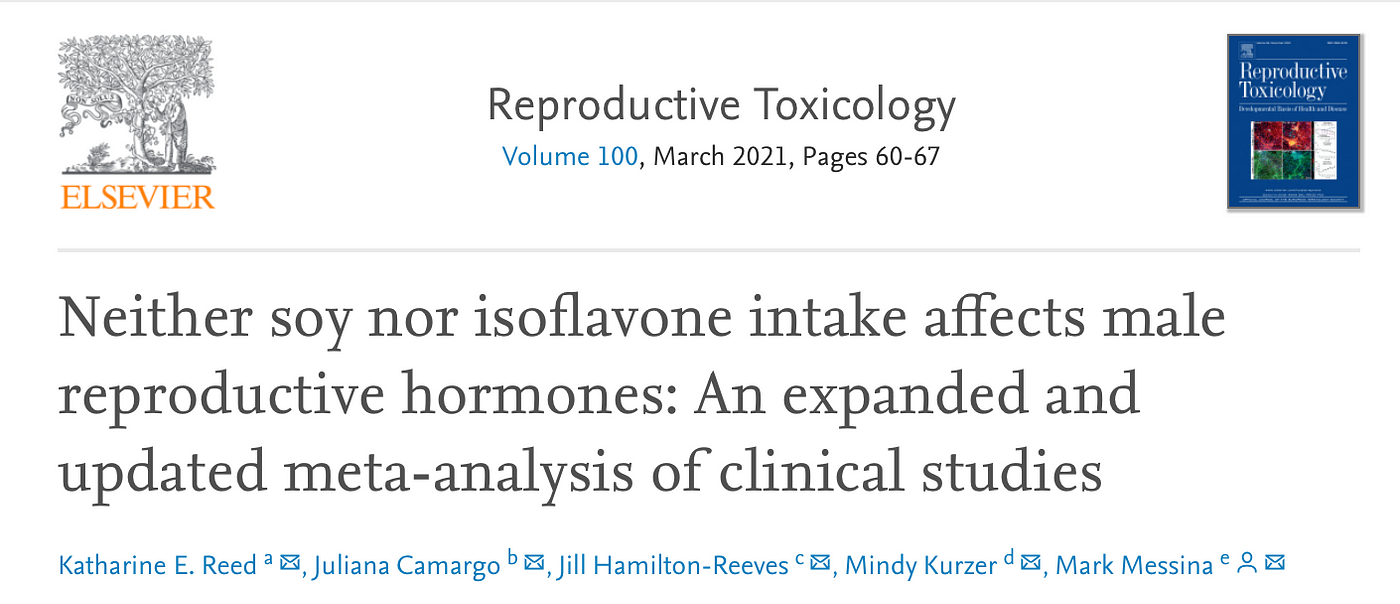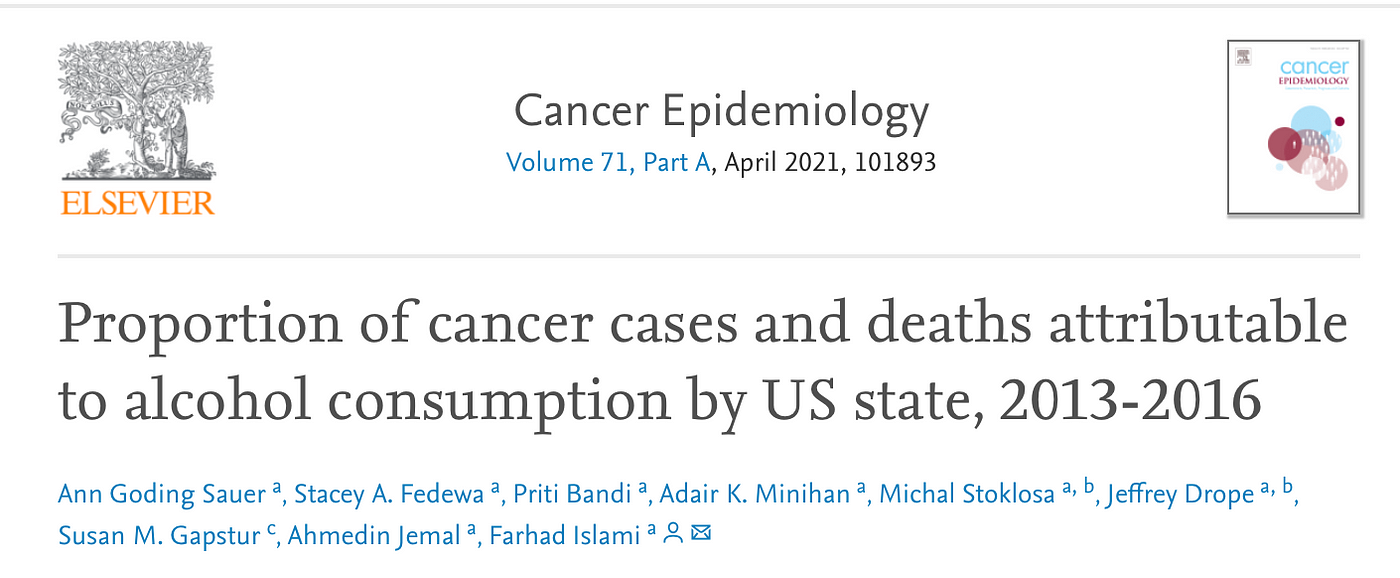Review of the week’s plant-based nutrition news 31st January 2021
This week I re-confirm the benefits and safety of soya consumption. I also cover the impact of diet on Parkinson’s disease, alcohol and cancer and highlight the ‘ghastly future’ awaited should we not address the climate and ecological crises.

SOYA, ISOFLAVONES AND CORONARY HEART DISEASE: Soya is full of healthy nutrients, including being a source of ‘complete’ protein (all 9 essential amino acids present), fibre, omega-3 fats and calcium. Soya also contains isoflavones, plant oestrogens, which have often led to controversy with regards to health effects.
This large study included >200,000 men and women from 3 US cohort studies — Nurses’ Health Study and Health Professionals Follow-up Study — that have been followed since the 1970’s and 80’s. Dietary soya consumption was analyzed — mainly tofu and soya milk — and the isoflavone content of the diet calculated. The results showed that there was a linear relationship between the consumption of isoflavones and risk of coronary heart disease. Those with the highest intake had a 13% reduction in risk of heart disease compared to the lowest intake, after adjusting for other healthy lifestyle factors.
Tofu intake was also associated with a reduced risk of heart disease. Those eating tofu 1 or more times per week had a 18% reduced risk of heart disease compared to those that rarely ate tofu. Every one serving per week reduced the risk by 9%. In women the association was only significant in premenopausal women and postmenopausal women NOT on hormone therapy. Hormone therapy appeared to neutralize the effects of tofu consumption. Soya milk consumption did not impact heart health but this might have been because overall soya milk consumption was low in the cohorts.
What are the potential mechanisms? Isoflavones and soya has been associated with better endothelial function, have anti-oxidant and anti-inflammatory effects, reduce blood cholesterol and the oxidized-LDL cholesterol and have beneficial effects on the gut microbiome.
In conclusion: although not every study has shown this benefit, soya consumption may be beneficial for heart health. It contains several health promoting nutrients and should be part of a healthy plant-based diet. In addition, soya consumption can benefit those with menopausal symptoms, reduce the risk of breast and prostate cancer and improve bone health. This large meta-analysis brings together the entirety of the health-related data on soya consumption summarising what we know and highlighting the multiple and broad health benefits.
Soya is also an excellent food to incorporate into the diet of babies and children and we have a factsheet that you can download from our website.


SOYA, ISOFLAVONES AND REPRODUCTIVE HORMONES: Food made from soya beans have been eaten for centuries in Asian countries. In non-Asian countries both men and women still worry that soya consumption may adversely affect hormonal health due to the oestrogenic activity of isoflavones. Men continue to worry that phytooetrogens have a feminising effect by lowering testosterone and raising oestrogen levels. There are three isoflavones, genistein, daidzein and glycitein, which differ from oestrogen at the molecular level whereby they preferentially bind to and activate ERβ in comparison to ERα. Human oestrogen has equal affinity for both receptors. There are differences in tissue distribution of both the receptors, which is the main reason why isoflavones can have a different effect in different tissues and hence are classified as selective estrogen receptor modulators (SERMs).
The concern around feminising effects in men has now been put to rest with this large meta-analysis bringing together data from 41 studies and also include the measurements of blood hormone levels. This study investigated the totality of data on whether soya or isoflavone consumption affects total testosterone, free testosterone, oestradiol , oestrone, and sex hormone binding globulin. Studies included those investigating the consumption of soya foods, soya protein, or isoflavone extracts (from soya or red clover). Total and free testosterone levels were measured in 1753 and 752 men, respectively; oestrodial and oestrone levels were measured in 1000 and 239 men, respectively and sex hormone binding globulin was measured in 967 men. Regardless of the statistical model, no significant effects of soya protein or isoflavone intake on any of the outcomes measured were found. The dose of isoflavone, nor the study duration showed an effect. These results leave little doubt that soya consumption is safe for adult men.
The consumption of minimally-processed soya consumption is in fact heart healthy, may reduce the risk of prostate cancer, is a superior source of protein than meat and should be part of everyones diet.

DIET AND PARKINSON’S DISEASE: There is a lack of robust data on the impact of diet on the risk and progression of Parkinson disease (PD). There are observational data to suggest an increased risk with dairy consumption with the most recent meta-analysis from 2014 showing a dose effect. A 2017 report from the Nurses Health Study and the Health Professionals Follow-up study suggested an increased risk in those consuming 3 portions of dairy a day compared to those consuming none, with the risk predominantly attributable to skimmed and low-fat milk. The mechanism for this is not entirely clear. Other recurrent themes in the literature are that dietary antioxidants such as vitamin C, vitamin E, carotenoids, selenium, and polyphenols may be protective given their ability to address the cellular stress that ultimately leads to the disease. I highlighted this paper last year that followed 43,865 men and women for more than 17 years. Consumption of vitamin C and vitamin E were associated with a significant reduction in the risk of PD. No prizes for guessing which foods have the most antioxidant compounds!
It’s always best to look at the overall diet pattern rather than individual nutrients when is comes to risk of chronic diseases. This study was a cross-sectional study, so not the most robust study design as reverse causation can not be excluded and diet is only examined at one point in time. It included 167 participants with PD and 119 controls and their dietary intake was scored for adherence to 2 healthy diet patterns — MIND diet and 2 versions of Mediterranean (Med) diet adherence. The two Med diets were the original version and the Greek Med diet, which in addition promotes potato intake and limits poultry consumption. The MIND diet is a mixture of the DASH and Med diets and emphasises leafy green, berry and poultry intake. The MIND diet has been associated with up to a 54% reduction in Alzheimer Disease incidence.
The participants with PD were mainly male (68.3%) and had an average age of 64 years. They had begun to experience motor symptoms (referred to as age of onset) an average of 6.5 years previously. Control participants were only 39.3% male and were slightly younger at 61.8 years. There were different finding for men and women. In Women, the MIND diet was associated with a significantly later onset of PD as was the Greek Med diet. The difference in onset was 17.4 years in women most adherent to the MIND diet. In men only the Greek Med diet was associated with a later onset with a difference in onset of 8.4 years.
Overall, this study leaves us with more questions than answers. The main take home message is that these healthy diet patterns, which overall emphasise more whole plant foods and hence antioxidant consumption and less red/processed meat and processed foods, are associated with a later onset of PD and therefore may have neuroprotective effects. Of course this makes sense and even more so when you take into account these diet patterns are anti-inflammatory and also reduce the risk of cardiovascular disease, type 2 diabetes and dementia. I can not think of a role for poultry consumption in these diet patterns other than the fact that they replace less healthy foods such as red and processed meat. Lets hope more research is available in this area soon.

ALCOHOL AND CANCER RISK: When it comes to alcohol consumption, many doctors have a blind spot. Consumption is socially acceptable and pleasurable for most. Nonetheless, it is important to be honest with the scientific data. Unfortunately alcohol consumption does increase the risk of cancer. This is through a number of mechanisms. Acetaldehyde, the main metabolite of alcohol, disrupts DNA synthesis and repair. Ethanol induces oxidative stress through increased production of reactive oxygen species, which also damage DNA. Alcohol may also act as a solvent such that it is easier for dietary or environmental carcinogens to penetrate cells and interfere with DNA repair mechanisms. Those consuming the most may also have diets that are lacking in essential nutrients, such as folate, making tissues more susceptible to carcinogenic effects of alcohol. Of course, like with most toxins, there is a dose effect and there may be a sweet spot where a certain level of alcohol consumption is acceptable to most whilst accepting a very small increase in cancer risk.
This study seeks to determine the current burden of alcohol-associated cancer risk in the US down to the state level between 2013–2016. Overall, it was estimated that 4.8% of cancer cases among adults aged ≥30 years could be attributed to alcohol consumption with a slightly higher risk in women (5%) than men (4.7%). The range was as low as 2.2% and as high as 7.7% based on the state. Nationally, alcohol consumption accounted for 75,199 cancer cases and 18,947 cancer deaths annually.
Alcohol consumption accounted for 49.8% (n = 91,017) of oral cavity/pharyngeal cancers and 30.1 % (n = 14,899) of laryngeal cancers. Alcohol consumption also accounted for an estimated 12.1% of female breast cancers, equating to an estimated 115,794 cases. Additionally, 11.1% (n = 62,766) of colorectal, 10.5% (n = 11,124) of liver, and 7.7 % (n = 5146) of oesophageal cancers could be attributed to alcohol consumption. In most states, ≥45% of oral cavity/pharyngeal cancers and ≥25% of laryngeal cancers were attributable to alcohol consumption.
Current guidelines for cancer prevention already state ‘do not consume alcohol’. The authors of this paper state ‘Healthcare providers and public health practitioners can educate the community to expand the currently limited awareness of the cancer-related risks of alcohol consumption’. Fortunately, cancer risk declines with increasing years of cessation from alcohol consumption.

OUR GHASTLY FUTURE: This is not happy reading but can not be ignored. It is now critical that healthcare professionals and scientists speak out about the current and imminent threat to humanity. So pleased that 17 emminent scientists have sounded the alarm and provide a stark and honest warning to world leaders. They critisize the ignorance and inaction of world leaders as part of the problem. We are facing a number of interconnected threats. These include global warming and climate change, biodiversity loss and destruction of natural resources. The sixth mass extinction event is already well under way. These crises are leading to mass migrations, food insecurity, pandemics and conflicts. Society as a whole needs to change dramatically. The currently economic model of continued and eternal growth is wholly unsustainable and a key part of the problem. The authors state ‘The gravity of the situation requires fundamental changes to global capitalism, education, and equality, which include inter alia the abolition of perpetual economic growth, properly pricing externalities, a rapid exit from fossil-fuel use, strict regulation of markets and property acquisition, reigning in corporate lobbying, and the empowerment of women’. We have the power to intervene and change our trajectory, it just requires a global political will.
The review references more than 150 papers and a number of key international reports published in the last few years. It highlights how the World has failed to meet any of the 20 Aichi biodiversity targets set in Japan in 2010.
It’s a shame there is no mention of the role of diet and the imperative for a global shift to a plant-based diet. Based on the results of the recent UN global climate poll that included 1.2 million people in 50 countries, mostly young people, it seems more work needs to be done in raising awareness in this area. The poll found that the promotion of plant-based diets was the least popular of the 18 policies in the survey, with only 30% support. There was country-based variation in this result with support highest in Germany (44%) and the UK (43%). The most popular policies were conservation of forests and land; solar, wind and renewable energy; climate friendly farming techniques; investing in more green business and job. It seems people are not connecting our current global food system with these 4 policies as none are possible without a shift to a plant-based diet.
If you have found this article useful, please follow my organisation ‘plant-based health professionals UK’ on Instagram @plantbasedhealthprofessionals and facebook. You can support our work by joining as a member or making a donation via the website
